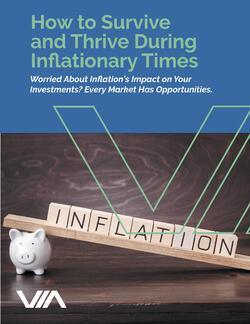

Start Planning for Retirement in Minnesota Today!
Planning, saving, and investment performance are the three pillars for a comfortable, secure retirement in Minnesota. A failure to do any of these properly can lead to frustrating consequences since all three can impact the financial lifestyle of your retirement years.
So when should you start planning and saving for retirement in Minnesota?
This article answers the following questions and more:
- Why should my retirement planning in Minnesota be a high priority?
- What is the difference between saving and planning?
- When is the right time to start planning, financially, for your retirement?
- How can Social Security and my company 401(k) help contribute?
Why Should My Retirement Planning in Minnesota Be a High Priority?
Early in your career, your priorities are usually your current standard of living and saving for your children’s college educations. As your earnings increase over time, you start thinking about an enhanced lifestyle that may include a vacation home or traveling the United States in an RV.
At the same time, regardless of what stage of life you are in currently, planning for retirement can never start too soon (or too late). At ViaWealth, we believe a well-thought-out retirement plan should be one of your top priorities. The reason why is that the sooner you have a plan, the sooner you start saving. The sooner that starts, the more money you are likely to have for your retirement years.
What Is the Difference Between Saving and Planning?
The difference here can seem subtle, but it’s important: Saving, typically, involves setting money aside, with or without a long-term goal in mind for it. Financial planning, meanwhile, means specifying a long-term goal(s), often with milestones (shorter-term goals) along the way.
Your saving, investing, daily expenses, retirement planning, and more can be streamlined toward your primary overall financial objective. Put another way, saving is good, but it is typically only a single aspect of financial planning.
You might be saving up, for instance, to buy a cabin on a beautiful lake. On the other hand, you could be accumulating assets for your future use as a part of a financial plan. The advantage of planning is that it can include that cabin purchase at some point. However, it should also factor in preparing income for your retirement.
When everything is rosy, it can be easy to think, “I have all I need, so why worry about the future?”
This, unfortunately, is an all-too-common mistake. The hard truth is that even the affluent need to take special care to protect their wealth today. Everyone should consider the impact of inflation on the purchasing power of their assets.
And, when do you plan to retire? Rising longevity could cause you or your spouse to live to be age 100 or more. Does your retirement planning factor this in?
Things can get even more complicated if one or both spouses become live-ins in a memory care facility. Are you prepared for that possibility, as well? If you are not, experienced retirement planning professionals from a firm like ViaWealth can provide valuable insight and answer your questions.
Worried About Inflation’s Impact on Your Retirement Savings? Download Our New eBook.
When Is the Right Time To Start Planning, Financially, for Your Retirement?
The sooner you have a retirement plan in place, the sooner you can start saving. In other words, the earlier that you begin, the more money you should have for your retirement years.
Consequently, the more money you have for retirement, the higher your potential standard of living and financial security later in life (when you need it the most). Do you need a retirement plan to start saving?
The answer is “No,” but a plan certainly helps because there are numerous variables that will impact your ability to retire:
- You and your spouse’s age at retirement
- Your retirement nest egg
- Investing in volatile securities markets
- The current rate of inflation
- Investment performance
- Financial expenses
- Medical care late in life
How Can Social Security and My Company 401(k) Help Contribute?
Should you start saving now—and then develop a retirement plan at a later date? Or, are you better off developing a retirement plan and then beginning to save for your retirement? Both are of critical importance.
And again, the younger you are when you start planning and saving, the higher the probability that you will meet (or exceed) your expectations. You are already contributing to a Social Security system that uses your money to pay benefits to current retirees.
Some retirement experts believe Social Security will be bankrupt by 2035. Therefore, your retirement plan should at least anticipate the possibility. It may still be around, though. In fact, the U.S. government may only be changing the rules for participation dates, amounts, and other restrictions in the coming years.
If you are in the workforce and your company sponsors a 401(k) plan, you should be contributing as much money as legally possible to this tax-advantaged account. An employer’s matching contribution makes this a great way to accumulate more money for your retirement years.
Meanwhile, you also need a retirement plan that details your investment strategy, tolerance for risk, and return objectives. Your priority should be the development of a conservative retirement plan as soon as possible.
How Will I Benefit Financially From Planning for Retirement in Minnesota During My Working Years?
Consider your retirement plan a disciplined approach for accumulating and investing assets that are being set aside for your future use. Above all, it should help you make the right financial decisions.
Starting as soon as you can will increase the number of years you have to compound the rates of return on your investments. And, the bigger the asset amount, the greater the impact that performance will have on your future asset amount. Consider the following:
- Your current asset amount is $500,000
- Your portfolio performance is +10% that year
- Your gain is $50,000
Now, consider what would happen if you have a larger asset amount:
- Your current asset amount is $1,000,000
- Your portfolio performance is +10% that year
- Your gain is $100,000

What Are the Consequences if I Delay the Start of Planning for Retirement?
If you start your retirement planning and savings efforts later in life, there is an obvious consequence. You may have less money for your retirement years accumulated. How can this consequence impact you and your spouse?
You may have to:
- Delay your retirement for a few years (age 65 becomes age 70 or higher)
- Take a part-time job so you can reduce distribution amounts from your IRA
- Increase your exposure to investment risk (to improve your returns)
- Reduce your standard of living during your early retirement years
- Possibly run out of money late in life, when you need it the most
The five consequences are real—and all of them are fairly undesirable. So, the longer you wait to start planning and saving for retirement in Minnesota, the higher the probability that one or more of these consequences will negatively impact your retirement years.
Can you ever accumulate too much money for retirement? The answer is, “No:” You may need it late in life. Additionally, if you don’t need it, you can use the excess funds to help multiple generations of your family live more comfortable lives. Contact ViaWealth to schedule a meeting.
ViaWealth, LLC is a Registered Investment Adviser. Information in this article is for educational purposes only and is not intended to be an offer or solicitation for the sale or purchase of any specific securities or other types of investments. Investing in the securities markets involve risk of principal and unless otherwise stated, returns are not guaranteed. Be sure to consult with a qualified financial adviser and/or tax professional before making any financial decisions. Past performance is not indicative of future performance.


